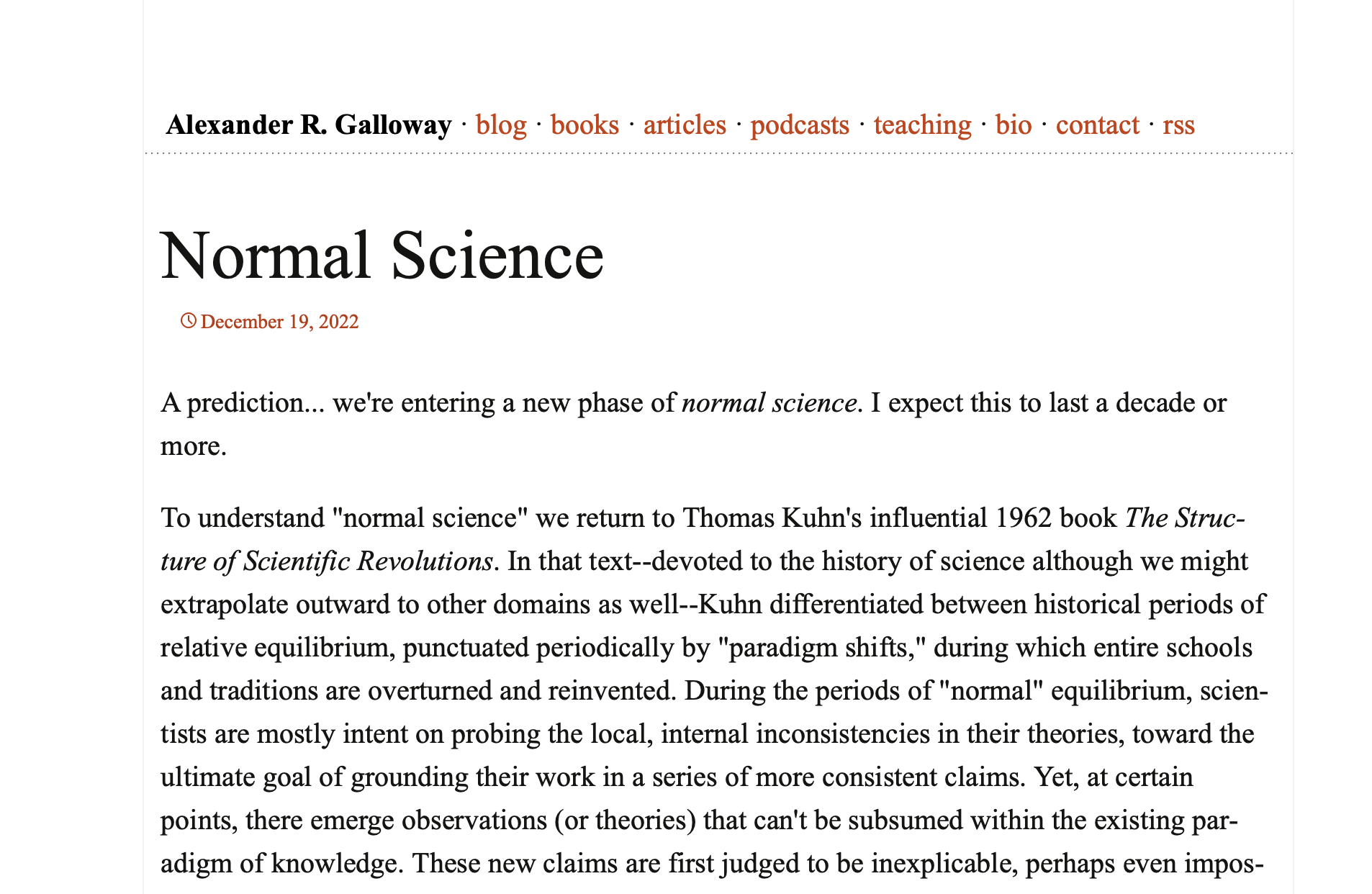Media academic Alexander R. Galloway wrote a blog post recently called Normal Science. I’ll summarise Galloway’s three observations derived from what he calls the ‘categorical saturation’ of AI; that is:
Let’s assume that every undergraduate essay is written by ChatGPT, that every programmer uses Copilot to auto-generate code, that every designer uses Stable Diffusion for storyboarding and art direction. What would happen if we analyzed such a scenario, the full saturation of AI across all categories?
– Alexander R. Galloway
Here are my brief summaries of his observations. I won’t comment on his observations (not least because I’m poorly qualified to do so) and I encourage you to read Galloway’s original post:
- As more content is generated through AI trained on huge data sets, those data sets increasingly become infected by AI Generated content. Galloways describes AI as being fundamentally centripetal and entropic: “it’s entropic because it’s extractive; value is taken out of the system, while less and less is replenished.”
- AI’s successes and failures bear no relationship to being true or false, and nor are they really successes or failures. They are merely probabilistic, and Galloway calls this fractal failure.
- AI doesn’t know when it is wrong, and when it is wrong it doesn’t even know that it is wrong. Galloway describes this as the absolute failure of AI.
